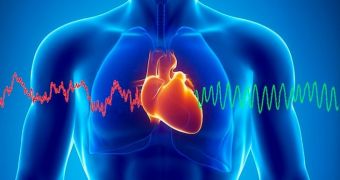Speaking at a meeting of the American Association for Thoracic Surgery in Toronto, Canada, this past April 28, a team of researchers went public with the news that they had successfully transplanted pig hearts in baboons.
The specialists went on to detail that, after being transplanted in the body of baboons, the hearts collected from pigs went on living for over 500 days, Live Science informs.
Speaking at the meeting of the American Association for Thoracic Surgery, the scientists who worked on this research project revealed that the hearts they used in their experiments all came from genetically engineered pigs, the same source details.
More precisely, they belonged to pigs whose genetic makeup had been altered in such ways that they no longer sported genes documented to trigger an immune reaction. Apparently, pigs were chosen for these experiments due to the fact that their anatomy is similar to that of humans.
In order to make sure that the baboons would not reject the transplanted organs, the scientists took care of oppressing their immune systems. This helped the hearts survive in the bodies of their new hosts.
Talking to the press, Dr. Muhammad Mohiuddin with the National Institutes of Health's National Heart, Lung and Blood Institute explains that, presently, having a recipient's immune system reject a foreign organ is one of the chief reasons why transplants sometimes fail.
Dr. Muhammad Mohiuddin further details that, by opting for hearts taken from genetically engineered pigs and by suppressing the baboons immune system, he and his fellow researchers managed to overcome this major hurdle.
Interestingly enough, the pig hearts were transplanted in the baboons' abdomens. Thus, they did not at any time replace the monkey's original hearts. They were, however, connected to the baboons' circulatory system.
In the years to come, researchers hope that they will manage to take things one step further and have baboon hearts replaced with pig ones altogether. This would pave the way for future animal-human transplants.
Given the success of these experiments, it is believed that, at some time in the feature, it might become possible to transplant animal organs in people. Should this be achieved, hospitals would no longer battle donor organ shortage, and many more lives could be saved.
Scientists say that, depending on circumstances, animal organs could replace human ones either temporarily, until a better transplant option comes along, or forever. Apart from hearts, people could be given the liver, kidneys, pancreas, or lungs of animals.

 14 DAY TRIAL //
14 DAY TRIAL //